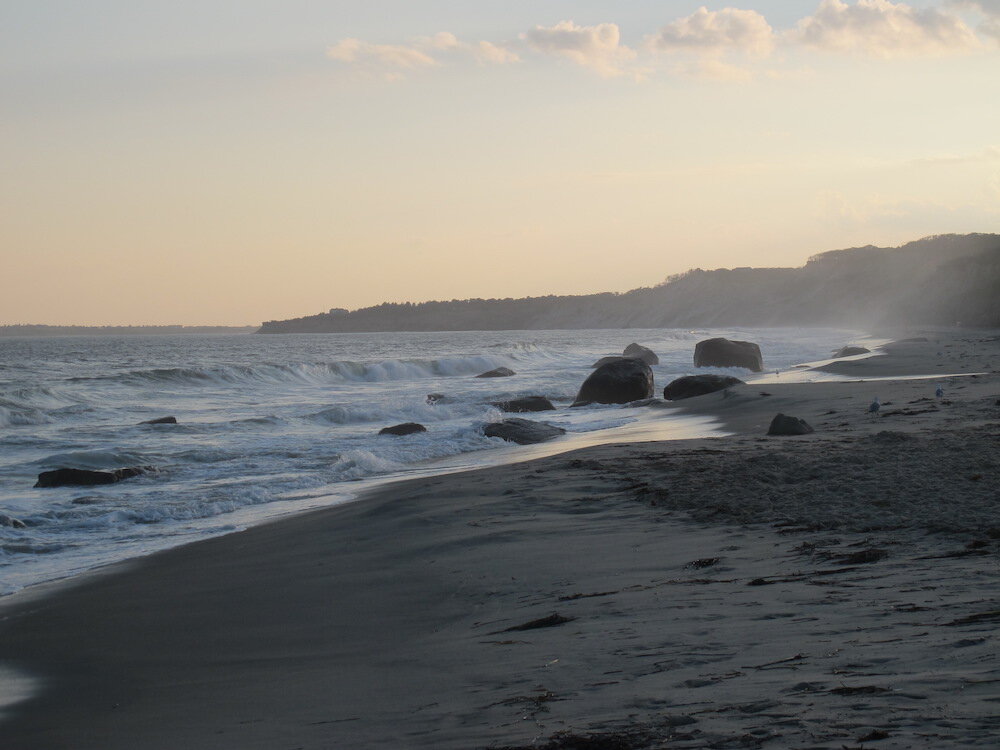
Green Sabbath Activities
Mankind is challenged, as it has never been challenged before, to prove its maturity and its mastery—not of nature, but of itself. Therein lies our hope and our destiny.
-Rachel Carson, “Of Man and the Stream of Time”, 1962
Activities you can practice; ideas for Communities, Congregations and Organizations
The idea and practice of a day of rest, green sabbath or weekly earth day might take many forms. Your community will decide what feels right.
If your community practices a religious tradition that includes a weekly sabbath, transform that day into a green sabbath (every week or every so often).
You might choose to celebrate a green sabbath once a month, four times a year or every week.
Some of the following suggestions fall under multiple categories, though we listed each only under one. Given our current Coronavirus reality, some of these suggestions may not be suitable at the moment.
Sabbath is for rest, for avoiding the manipulation or harming of nature. The biblical sabbath was about remembering, honoring and celebrating the creation of the world.
Urge your members to minimize their environmental impact by following Green Sabbath Project suggestions (www.greensabbathproject.net). Support their efforts with collective practices such as those offered in this document.
If you are a congregation, consider joining a network of congregations seeking to reduce their environmental impact:
Interfaith Power and Light has many state chapters which have congregational membership open to all denominations.
Earth Ministry has a Greening Congregations Program for churches (https://earthministry.org/greening-congregations) and a toolkit (https://earthministry.org/greening-congregations-toolkit).
Green Churches Network of Canada (https://greenchurches.ca)
Toiles des Églises Vertes en Afrique / Green Churches Network in Africa (https://teva-afrique.org)
United Nations Environment Programme, Faith for Earth Initiative, Guidelines on Green Houses of Worship
Encourage congregants to walk, cycle or carpool to services (as does Our Lady of Fatima parish, Coquitlam, BC)
Make your personal and communal meals as sustainable as possible (see Hazon’s Green Kiddush Guide).
Avoiding or significantly reducing consumption of meat is one of the most impactful environmental changes that can be made.
Order produce from Imperfect Foods or Misfits Market , both of which reduce food waste by selling strange-looking fruits and vegetables that companies would otherwise discard.
Have a meal of foraged foods -- urban foraging has become quite popular (for ideas see here, here, here and here).
Encourage congregants/members/participants to leave their phone, tablet, computer, ipad at home or collect them at the door You might join the Technology Shabbats campaign.
Organize a clean-up of a local site that needs some love and care. SanghaSeva organizes Sacred Place virtual retreats for mindful local clean-up.
Divest your investments from fossil fuel companies
Participate in the removal of invasive species from a threatened local site
Sabbath is a temporary return to the Garden of Eden.
Hold prayer services or a meditation circle outdoors, in a local garden or park
Take a group walk outdoors (somewhere close enough that you need not get into a car).
Connect with a tree or plant, indoors or out. See Inside Out for spiritual exercises you can use in outdoors experiences offered by the Center for Spirituality in Nature.
Make a temporary sculpture or mandala out of found natural materials (twigs, leaves, stones, etc.). Create a circle of stones, a kind of natural altar and ritually-demarcated space. Read nature poetry out loud.
Hold a group meditation (live or online) or meditation circle, indoors or outside, with a focus on a mantra for or about the planet and collective rest.
Plant a garden by your building. The ancient Jewish sage Rav maintained a garden at his house of study. Islam has always held gardens to be sites conducive to accessing the sacred. Plant a wildflower garden, which pollinators (bees, butterflies, hummingbirds, etc.) love.
Maintain or start a forest on your property (like the ancient church forests of Ethiopia, https://www.nature.com/immersive/d41586-019-00275-x/index.html and https://emergencemagazine.org/story/the-church-forests-of-ethiopia)
Set up a beehive or two on your premises (Bees for Peace offers a network for faith communities)
Do a group food foraging outing (some resources listed above)
Sabbath is about family and community.
Organize an event for your building or block. Invite all of your immediate neighbors.
Go interdenominational: get local synagogues, churches and mosques to join your event, have each denomination devote its day of rest to environmental priorities.
Do a communal sing-in or sing-along. You could sing:
selections from The Lost Words (https://www.thelostwords.org)
Malcolm Dalglish’s setting of Wendell Berry’s poem, Great Trees (https://www.youtube.com/watch?v=Uq_d-r_N1vk)
A Place in the Choir by Bill Staines (https://www.youtube.com/watch?v=e1D5DYIx6Zc; different covers: Rabbi Levi Weiman-Kelman and Bradley Burston: https://www.youtube.com/watch?v=e_cvb7Rp444&feature=youtu.be; Celtic Thunder: https://www.youtube.com/watch?v=-iP27eatYxE)
Pentangle’s Mother Earth
Of Time and Rivers Flowing by Pete Seeger (https://genius.com/Pete-seeger-of-time-and-rivers-flowing-lyrics).
As Forças da Natureza by Clara Nunes
Lyndsey Scott’s I am the Song
All the Leaves by Batya Levine
Get together to write your own prayers for the earth, the rain, your favorite trees or recently lost species and incorporate them into your liturgy.
Find inspiration in Earth Prayers: 365 Prayers, Poems, and Invocations from Around the World, ed. Elizabeth Roberts and Elias Amidon (San Francisco: HarperSan Francisco, 2009) and Cláudio Carvalhaes, Liturgies from Below: Praying with People at the Ends of the World (Nashville: Abingdon Press, 2020).
Start a community garden on your property.
Make it a Climate Victory Garden (https://www.greenamerica.org/climate-victory-gardens).
Start a book club or reading group on environmental issues. You can start with readings listed on the Green Sabbath Project website and we will be happy to recommend other relevant books and essays.
Invite elders from within or beyond your community to share stories about the local landscape, ecosystems and history.
Sabbath is about hospitality.
Host a potluck meal, meatless, with vegan options, all locally-sourced. See Hazon’s Green Kiddush Guide and Sustainable Shabbat Dinner Guide.
Offer a free meal for the poor, the homeless, undocumented immigrants.
Set up a “community fridge” (https://www.theguardian.com/world/2020/aug/10/no-one-should-go-hungry-sidewalk-fridges-of-free-food-help-americans-survive-pandemic)
Sabbath is about education.
Organize a film screening of an environmental documentary (find suggestions here, here, here, here and here)
Host a read-along of ecological children’s or young adults’ books to the local community (some ideas here, here, here, here, here and here)
Devote sermons to environmental themes (examples from Earth Ministry, Hazon, Interfaith Power and Light, Unitarian Universalist Ministry for Earth; guidance from Eco-Justice Ministries, SustainablePreaching.org).
Instead of a sermon, have members rotate reading out loud from the Bestiary of Christ, the Buddhist Jataka tales, Dr. Suess’s The Lorax or other stories with an ecological theme (find suggestions here).
Invite a speaker from the Green Sabbath Project’s list of speakers.
Play games that teach suitable lessons: Go Find It Outdoor Scavenger Hunt, Bug Bingo, Ecofluxx, Ecosystem, Photosynthesis, Endango, Save the Planet
Participate in group simulation games to mitigate global warming (https://www.climateinteractive.org/tools/world-climate-simulation)
Sabbath commemorates liberation from oppression. The biblical shabbat was dedicated to commemorating the Israelite escape from slavery. Every Israelite in the desert collected the same amount of manna. The excess manna gathered by anyone who took more than was needed went bad, a signal that God disfavors inequality.
Offer useful free classes for the poor and homeless
Hold a vigil or silent protest against everything contrary to a sabbath economy and spiritual ecology: the low tax on capital gains, legally-permitted predatory payday loans, anti-unionization, corporate personhood, the Citizens’ United Supreme Court decision…
Or in favor of a living wage, ending the electoral college, ending partisan gerrymandering in your state…
Hold a prayer service or meditation circle at a nearby source of pollution, negative environmental impact or harmful environmental policy, compassionately but firmly asking for the awakening of minds and hearts, for recognition of the harmful behavior, for change.
Hold a voter registration event
Sabbath is for appreciation and gratitude for the earth, the cosmos, existence.
Read aloud from Thich Nhat Hanh, “Ten Love Letters to the Earth”; O. P. Dwivedi and Christopher Key Chapple’s translation of In Praise of Mother Earth: The Prthivi Sukta of the Atharva Veda; Psalm 104.
Thank God, mother earth, the rain cycle, your body with original prayers or poems solicited from congregants/members…
Hold an appreciation ceremony for “essential workers.”
Mount a performance of Malcolm Dalglish’s Hymnody of Earth (https://www.ket.org/education/resources/hymnody-of-earth), J. David Moore’s setting of Jack Manno’s Earth Blessing (https://jdavidmoore.net/works/soprano-alto/earth-blessing), Ola Gjeilo’s Kyrie “The Spheres” (from his Sunrise Mass), Robert Lowry’s hymn At the River (arranged by Aaron Copland), or Daniel Elder’s Ballade to the Moon.
Let the Green Sabbath Project know about any event that you hold. Contact us at info@greensabbathproject.net and we will advertise on our events calendar.

Join Our Mailing List
Sign up to receive news and updates
